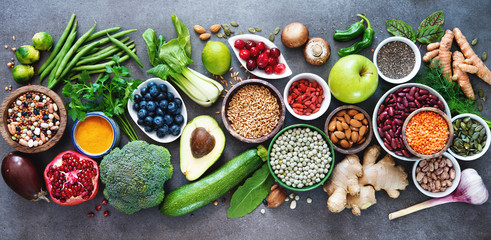The Freezer Is Your Friend: Tips and Recipes to Save Money and Reduce Food Waste
April 26, 2024 Ben Eglash
With food prices soaring, the UMB Office of Sustainability and Yes Chef! offer helpful tips and recipes.
Stop Food Waste Day and Earth Month have just passed, but for the University of Maryland, Baltimore’s Office of Sustainability, every day is Stop Food Waste Day. Here are some tips and recipes to reduce food waste:
Tip No. 1: The freezer is your friend! Food will keep much longer in the freezer than it will in the fridge. If you have too much food to eat, freeze the raw ingredients and cook one portion at a time when the craving strikes. Or cook everything and freeze the extra portions. It is even more difficult to shop and cook for one, so make sure to freeze what you will not use or eat soon, and you will be amazed at how much food (and money) you can save!
Bonus Tip: Buy a vacuum sealer to keep things fresh in the freezer for even longer. It may seem expensive, but you will save money in the long run by wasting less food.
Tip No. 2: Swap your fresh fruit and vegetables for equally nutritious frozen fruits and veggies. Fresh fruits and vegetables often spoil much faster than other groceries. Opting for frozen options of fresh produce can drastically reduce the amount of food you’re buying that ends up spoiling. Frozen food has advanced so much in recent years that there is no limit to the types of food you can buy and store in your freezer.
Tip No. 3: Save all of your vegetable scraps to eventually make a homemade vegetable stock. Roots, peels, cores, stems, stalks, excess — refrigerate everything in a Tupperware container, and once you have enough, you simply dump the contents into a pot of boiling water, simmer, then strain until you have your very own delicious vegetable stock.
Tip No. 4: You’ll never learn if you don’t try. Take a single or couples cooking class, try a new cuisine, or attempt a new recipe — if you cook chicken, learn how to break it down yourself. Cooking at home will end up saving you a lot of money in the long run, and you will learn a skill that will be useful and impressive for the rest of your life. If you don’t want to pay for a class, the internet has everything you need to become a proficient cook.
Concluding Advice
Be conscious about your portion sizes; not everything should be supersized. We all crave convenience, but once we get food, we often don’t care about anything else. Think about what happens next and try to compost your food scraps when possible. If you order food, try to reduce the amount of packaging waste. We tend to consider how our choices affect ourselves, but not how our choices affect the environment.
If you want to reduce food waste, save money, and benefit the environment, use the advice in this article and check out Yes Chef! They offer affordable, nutritious, subscription-free heat-and-eat meals and recently opened a cafe on the first-floor lobby of the SMC Campus Center (621 W. Lombard St.). A changing menu and a variety of options ensure that there is something for everybody. Below are some recipes to help fight food waste from the head chef himself.
Three Delicious Recipes to Help You Fight Food Waste
Banana Bread UMB: Don’t throw away your old bananas. Those brown bananas you didn’t eat are perfect for making banana bread.
Bread Pudding UMB: Don’t throw away your old bread. Stale bread is recommended for bread pudding.
Tofu Dish: Even if you’re not vegan/vegetarian, this recipe is a good addition for those trying to eat less meat. Reducing meat consumption may not only benefit your health, but it will benefit the environment, too.